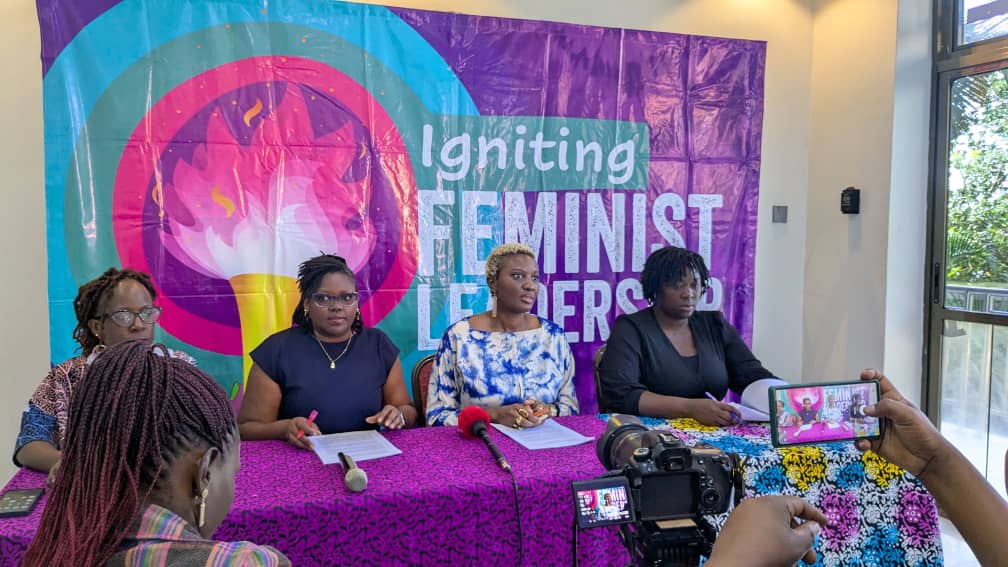By Catherine Namugerwa
As the 11th African Regional Forum on Sustainable Development gets underway at Speke Resort Munyonyo in Uganda from April 9–11, 2025, the African Women’s Major Group is using the platform to advocate for intersectional, feminist-driven solutions that improve the lives of African women and girls in all their diversities.
With a sharp focus on reviewing five key Sustainable Development Goals -SDG 3 (Good Health and Well-being), SDG 5 (Gender Equality), SDG 8 (Decent Work and Economic Growth), SDG 14 (Life Below Water), and SDG 17 (Partnerships for the Goals)—the group is urging governments to go beyond rhetoric and deliver on their commitments.
“Progress has been made, yes but it’s not enough,African women and girls are still facing barriers that make it impossible to achieve these global goals in a meaningful way.”said Olabukunola Williams, Sexual and Reproductive Health and Rights (SRHR) Lead at Akina Mama wa Afrika.
The group raised alarm over how global and regional crises from climate change and natural disasters to political instability, conflicts, and debt have created conditions that delay progress and erode hard-won gains.
According to the women,
Faith Lumonya, Economic Justice and Climate Action Lead at Akina Mama wa Afrika saus civic space across the continent is shrinking, and a coordinated pushback against human rights particularly those of women, girls, and gender-diverse individuals is becoming more aggressive.
“There is a growing threat to democracy, gender equality, and the rule of law,Anti-rights movements are well funded, organized, and relentless. We cannot afford to stay silent or passive.”faith noted.
A major concern raised during a press briefing at Sir George Hotel in Kampala was access to healthcare. Legal and societal barriers continue to deny young people, people living with HIV, women, and LGBTQ+ communities timely access to essential services.
Williams emphasized that despite strides made in reducing maternal mortality, Sub-Saharan Africa still records a high rate of 454 deaths per 100,000 live births far above the SDG 3 target of 70.
“Many of these deaths are preventable and result from unsafe abortions, especially among adolescents. This is unacceptable. We need a health system that protects, not punishes,” she said.
The group presented a series of recommendations, calling for governments to acknowledge and value the unpaid care work done by women—which includes caregiving, emotional labor, and household management—roles often dismissed as ‘natural’ and thus uncompensated.
“Care work underpins our economies, yet it goes unnoticed and unrewarded,” Lumonya said. “We need feminist financing that reflects the reality of women’s labor.”
Penny Ogembo, President of the Girl and Young Women Movement in Kenya, called for the swift ratification and full implementation of the Maputo Protocol across all African states.
“Until African women and girls enjoy full protection under the law, their rights remain theoretical,” she said. “Domestication of the Maputo Protocol is non-negotiable.”
The African Women’s Major Group also outlined broader policy recommendations, including:
- Promoting digital inclusion.
- Collecting and utilizing gender-disaggregated data.
- Strengthening regional and continental cooperation on the 2030 Agenda.
- Advancing climate adaptation and access to climate financing.
- Implementing gender-responsive budgeting.
- Ensuring universal health coverage.
- Eliminating structural barriers to social services
Wambui Kimanyi, Executive Director of the Zamara Foundation in Kenya, highlighted concerns over financial sustainability.
“Kenya’s overdependence on donor funding for reproductive health and HIV services jeopardizes long-term progress,” she warned. “Public investment in health is still below the Abuja Declaration target of 15% of the national budget. That must change. We need to invest in our people, our systems, and our future.”
The message from the African Women’s Major Group is clear: real transformation demands inclusive governance, feminist economic frameworks, and public systems that put people especially women and girls—at the center.
Have An Advert Or Article You Want Us To Publish? Whatsapp: +256786288379 or email binocularugnews@gmail.com
